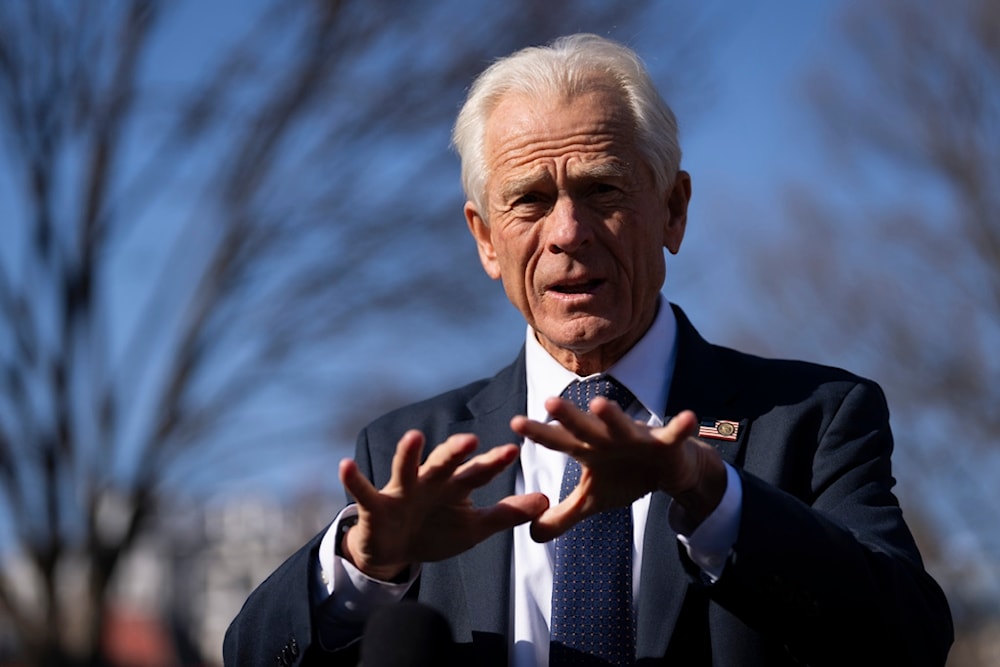$6 trillion in US revenue from tariffs over a decade, Navarro claims
Navarro identified the automotive sector as a key source of this projected revenue, explaining that "by imposing car tariffs alone, the country will be able to secure about $100 billion."
-

White House trade adviser Peter Navarro speaks to reporters at the White House in Washington, Wednesday, March 12, 2025. (AP)
US Senior Counselor for Trade and Manufacturing Peter Navarro announced on Sunday that the federal government could raise up to $600 billion annually through import tariffs, ultimately generating $6 trillion over the next decade.
"The ... tariffs are gonna raise about $600 billion a year — about $6 trillion over a 10-year period," Navarro stated in an interview with Fox News.
He identified the automotive sector as a key source of this projected revenue, explaining that "by imposing car tariffs alone, the country will be able to secure about $100 billion."
Alongside the tariff plans, Navarro previewed new legislation aimed at strengthening the US auto industry by incentivizing consumers to purchase American-made vehicles.
"The US administration will work towards a new bill to provide tax benefits and tax credits to those who buy US-made cars instead of imported vehicles," he said.
Tariff Surge
This revenue forecast builds on a series of aggressive trade measures already introduced by the Trump administration. On February 18, President Trump signed an executive order imposing a 25% tariff on imported steel and aluminum, which went into effect on March 12. Tariffs have also been applied to goods from Mexico and Canada, and duties on imports from China were raised to 20%.
A new 25% tariff on foreign-made cars is set to take effect on April 2, a move that could affect over $400 billion in automobile imports, according to trade analysts. The White House argues that this policy will encourage automakers to build more facilities in the United States and strengthen domestic supply chains.
However, the sweeping measures have sparked concern among economists and global partners. Analysts warn that the new tariffs could lead to higher consumer prices, particularly for automobiles, and disrupt global supply chains. Major US automakers have already seen stock declines in anticipation of reduced profit margins and retaliatory measures from trade partners.
Read more: Trump stands firm on tariffs, Signal leak, interest in Greenland
Despite the warnings, the administration insists the tariffs are essential to revitalizing American industry and reducing dependency on foreign production. Navarro and other officials argue that revenue from tariffs will help fund middle-class tax cuts and create domestic jobs.
Internationally, the aggressive trade stance has drawn criticism. Several countries have signaled potential countermeasures, raising fears of escalating trade tensions. Nonetheless, the Trump administration appears committed to its protectionist agenda, positioning tariffs as both a fiscal tool and a political statement.

 3 Min Read
3 Min Read








